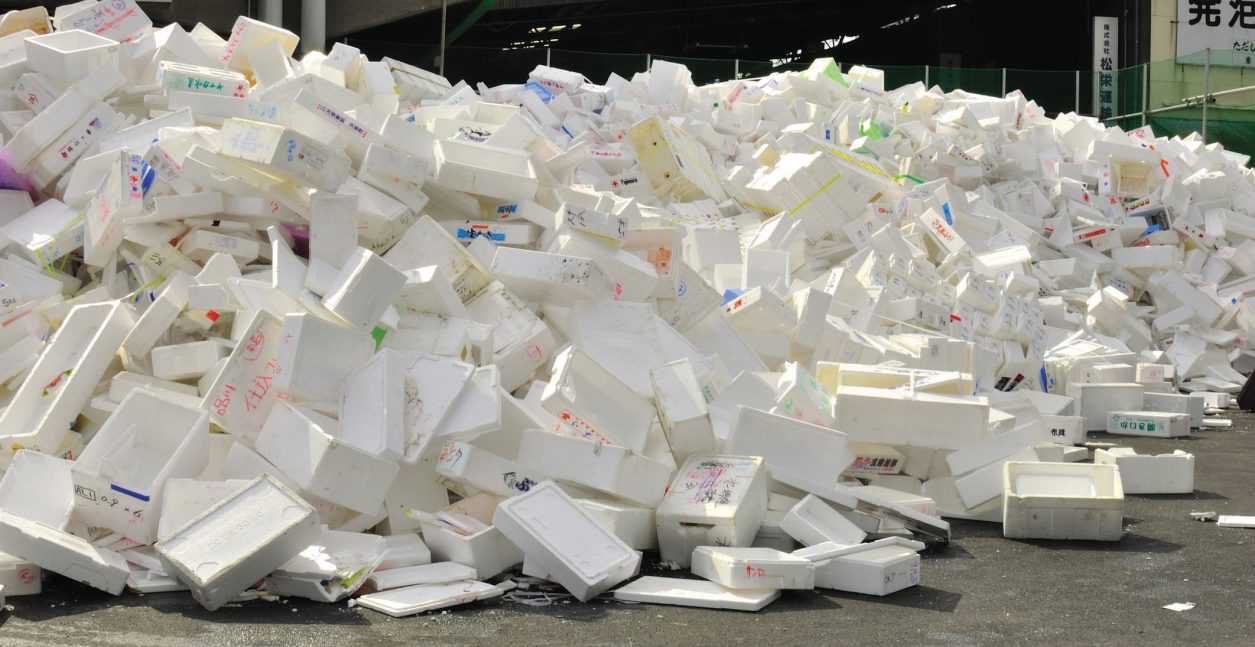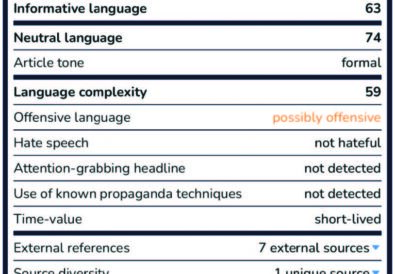Many states, cities and towns around the United States are banning disposable cups and food ware. But that is just the tip of the foam iceberg. We need your help in creating Styrofoam I Expanded Polystyrene (EPS) Bans & Recycling programs, locally, nationally and globally.
The Challenge
Though EPS foam food ware is cheap to manufacture and buy for restaurants, they wreak havoc on marine environments, littering beaches worldwide. EPS foam does not biodegrade in our lifetime. It may break into small pieces, and be harder to clean up. Foam takes 500 years to forever to decompose. It has filled-up one-third of landfill space that is fast becoming full.
EPS shows up in landfills as construction material scraps, cushioning material, plates, cups, coolers, supermarket food wrapping and restaurant take home containers. Styrofoam is a brand name. Expanded polystyrene is the generic name for the material that we typically think of as Styrofoam. The brand is a trademark of the Dow Chemical Company that is made in sheaths for construction projects.
Polystyrene plastic foam is one of the biggest sources of marine litter and costs state and local governments millions of dollars each year to collect from beaches, road sides and storm drains.
Products made of polystyrene foam don’t decay naturally, often breaking down into small pieces, polluting land and waterways. Fish and land animals mistakenly eat these small pieces and fall ill. If a product is unsafe for the environment, it should not be produced. Products should be safe, recyclable, compostable, or circular – returnable to the manufacture at the end of its life-cycle.
In 2019, on Long Island where I live, town trash collectors no longer recycle foam. I was shocked, so in one month, I saved a big shopping bag of foam from my personal use made up of egg cartons, food appliance cushioning and supermarket product packaging. Multiply that by millions of households-I clearly see we need a ban for small items and recycling for foam blocks and construction scraps. Expanded polystyrene bans in many states, cities and towns have been requirements that takeout food packaging be returnable, recyclable, biodegradable or degradable.
Many present bans are limited to restaurant take-home packaging. These bans do not include the giant blocks of expanded polystyrene used to cushion many items.
Bans
Many places around the country are seeking to ban Styrofoam/EPS. Near me, New York City and the Village of Patchogue on Long Island have bans for restaurants. In 2016, San Francisco passed the strongest Styrofoam ban in the country, banning almost all sales and uses of Styrofoam, including cups, egg cartons, coolers, and packing peanuts.
The solution to the Styrofoam I expanded polystyrene (EPS) problem is finding and using alternative materials. Recycled paper products are the best alternative. Paper products are biodegradable and non-toxic to the environment. Easily recycled or composted, molded paper is good for shipping, product packaging and food containers.
We need a local Styrofoam Ban, state, federal and global bans, and recycling programs.
Recycling
Towns in Nassau and Suffolk Counties near me on Long Island, no longer accept foam, claiming there is no recycling market for it.
Home for Foam (www.homeforfoam.com) promotes foam curbside and drop-off recycling programs in four steps:
1) collection, 2) foam compacting into dense bricks, 3) compacted foam converted to pellets, 4) pellets used to create new plastic products like rulers, pens, and picture frames.
Get Involved
You need to set-up meetings with your Town and County officials to discuss bans and recycling programs. Please care deeply about the environment. Champion a foam ban or recycling program in your Town and County.
Sandy Hinden has worked for peace, the environment, culture, health and human services, and in community and global development, as an administrator, program director, fundraiser, group facilitator and organizer. He is the author of 7 Keys to Love, a speaker, workshop leader, group facilitator and coach. sanfordhinden@verizon.net




















